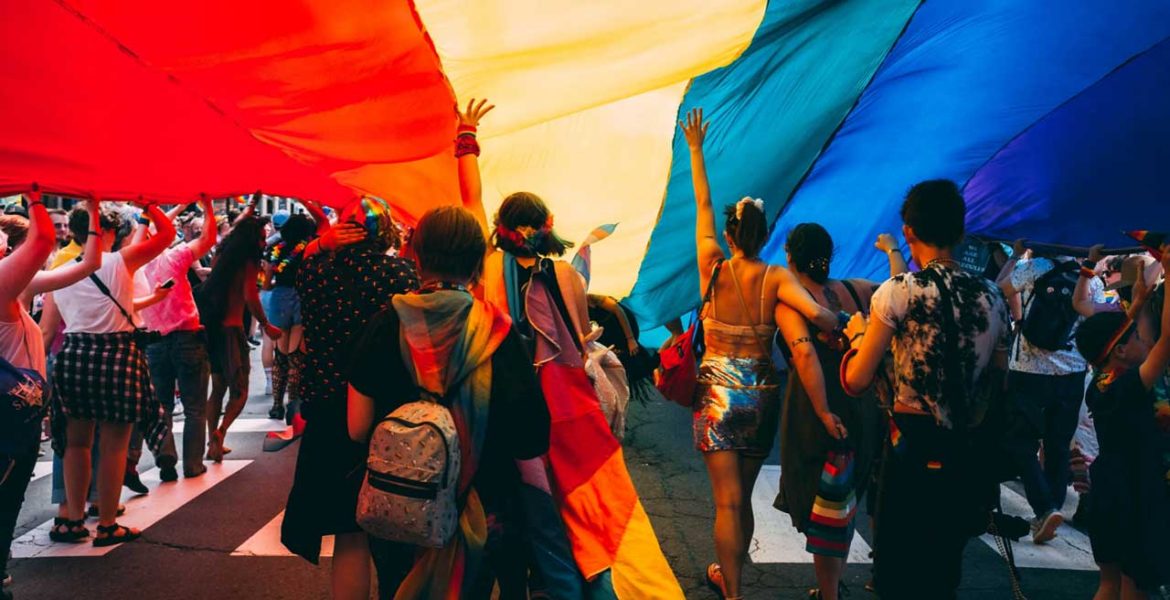In the last decade alone, the mainstream has embraced the experiences of queer people. Niche vernacular has given new life to linguistics and can be heard everywhere from a coffee shop to a conference room as a common turn of phrase (yas, queen!).
And every June, the rainbow comes out on storefronts, product packaging, social media feeds and even as takeovers on corporate logos.
And yet, this seemingly open acceptance of gay culture has been criticized for commoditizing and even sanitizing the LGBTQ+ experience, leaving it devoid of the authenticity and depth which were hallmarks of the movement’s roots.
Furthermore, the appropriation of the symbols and celebrations has effectively erased the historical weight and need for pride; Thus becoming a marketing gimmick that needs to be addressed: PRIDE™
Marketing and advertising have embraced PRIDE™—with colorful dollar signs and branded merchandise—and disregarded for Pride. The latter is rooted in a strong history of giving voice and the freedom of expression to people who were openly considered as “less than” and rarely heard. The former, in the idea that this is the “best way” to drive commerce.
Now’s the time to critically examine yourself, your brand or your agency. There are key questions to ask before pursuing a campaign directed toward the LGBTQ+ consumer.
Have you participated in rainbow washing?
“Rainbow washing” refers to the placing of the colors of the rainbow flag (a symbol of the community since the 1970s) on logos and products, without the aim of providing further explanation or exploration. Rainbow washing is also a consequence of seeing the community as one entity instead of as various individuals.
Does the product or effort contribute toward building up those who identify as LGBTQ+?
Going beyond the branded products and colorful logos, the aforementioned don’t directly contribute to the LGBTQ+ community needs. Monetary gains should be of service instead of being perceived as making a profit off someone’s gender sexual orientation. More than 45% of LGBTQ+ individuals under 35 would align with a brand if they know a brand as an ally.
Do you know what the acronym means and the vocabulary surrounding identity?
Just like with race, not all queer people are the same and the terminology is not interchangeable. Sexuality, gender and expression are not the same things. And there are outdated terms that originated out of misconceptions but are still being used. Equip yourself with knowledge!
Throughout the ideation process, production, and decision making: where the very voices of LGBTQ+ members involved?
One cannot speak on subjects one has no insight on. The greatest disservice we as marketers can do is to invalidate, whether consciously or inadvertently, the thoughts, opinions and narratives of those who identify proudly as LGBTQ+, when we should be listening, learning and repeating.
Are you going to commit to the community beyond June?
Now that June has come to a close, here’s one more key question you need to ask yourself: If diversity and inclusion efforts are associated with one-off efforts to align with dates on a calendar, then this is PRIDE™. The issues, concerns, beliefs, and joys of LGBTQ+ people are year-round and don’t go back into the closet until June of the following year.
Consumers are worthy of truth and authenticity. We are people and should be seen as more than a trend, statistic, or monetary opportunity.

